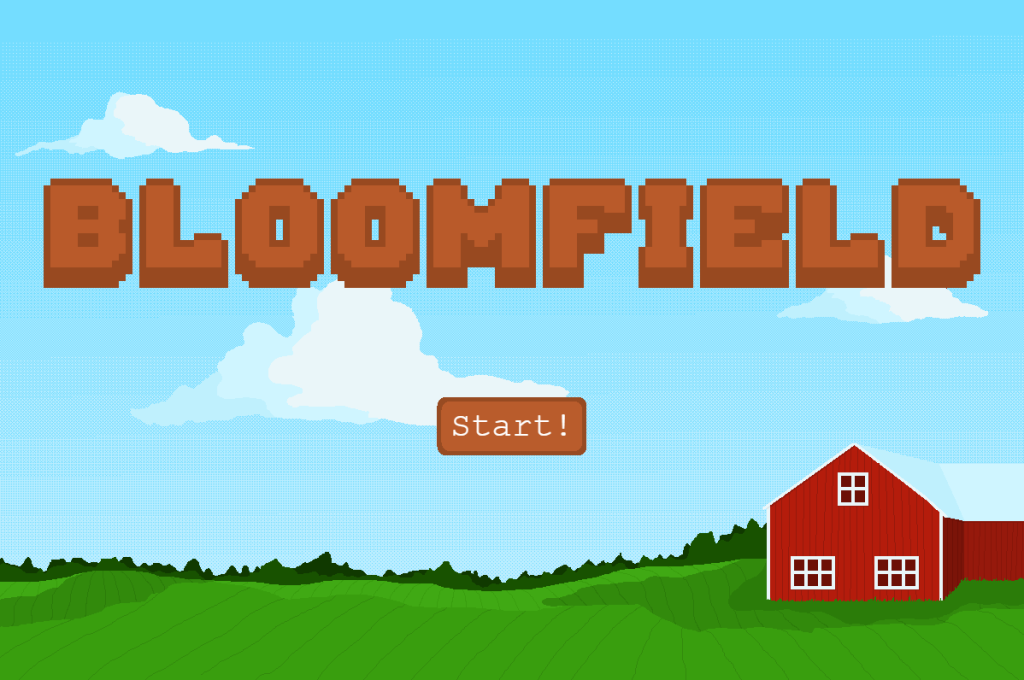By Marian Cracraft
A team of UW–Madison students in the spring 2025 Game Design 1 course (Curriculum and Instruction) has received international recognition for its work on a new game addressing global hunger.
The student group — including Sam Askling, Uzen Huang, Sukrit Kapahi, Jiayi Yan, and Lauren Turf — participated with classmates in the Games for Change Student Challenge: Outplay Hunger. The challenge called on students to design a game around two key issues: reducing food loss and waste, and achieving a healthy food diet in their school, community, or country. Using the design tool of their choice, students were tasked with creating a game that would both inform players and inspire them to take action.

The group’s project — a game called Bloomfield — was selected as a finalist and named Best Outplay Hunger Game in the university-age division this past July. Focusing on renewable farming practices, Bloomfield aims to shed light on the complexity of farming and the food chain. The game highlights factors including how well different crops store or affect soil quality, while the storyline connects the disappearance of family farms with local economies.
Despite these complex themes, the game itself remains approachable. Players return to town to take over their grandfather’s farm, and, across several rounds, they gain access to more crops and land. With each round, challenges increase as players work to feed the town, revitalize its economy, and build a long-term sustainable food supply.
In a video announcing the award, Uzen reflected on the team’s work: “I think a successful game is about the passion behind the players and the developers and the game itself,” he said. “I’m very proud to have made this game together with my teammates because it’s truly a culmination of all the different perspectives we have — and all of the things we wanted to yell at the player through the screen, but we really couldn’t.”

Krista-Lee Malone, a teaching assistant professor in the Department of Curriculum and Instruction and an instructor with the Game Design Certificate program, designed the course with an emphasis on learning through making. “My hope,” she said, is that “students discover the impact potential of games, their potential to have a positive effect on the world, and to connect what they do here in one small city to the global community.”
“I was ecstatic and a little shocked when I discovered one of the groups made it to the finals,” Malone added. “I was focused on the students’ engagement with the competition, not on their ranking within it. Of course, I am so proud of this group, but also of all the games and the discussions that came out of this.”
The Game for Change Student Challenge invites youth to create digital games inspired by the United Nations Sustainable Development Goals. The program uses interest in video games to help students build coding, digital design, problem solving, collaboration, and other critical STEAM skills. It also serves as a platform to amplify student voices and empower young people to see themselves as engaged citizens and changemakers.
Since its launch in 2015, the Challenge has benefited tens of thousands of students, teachers, and communities. Read more about the Games for Change Student Challenge.